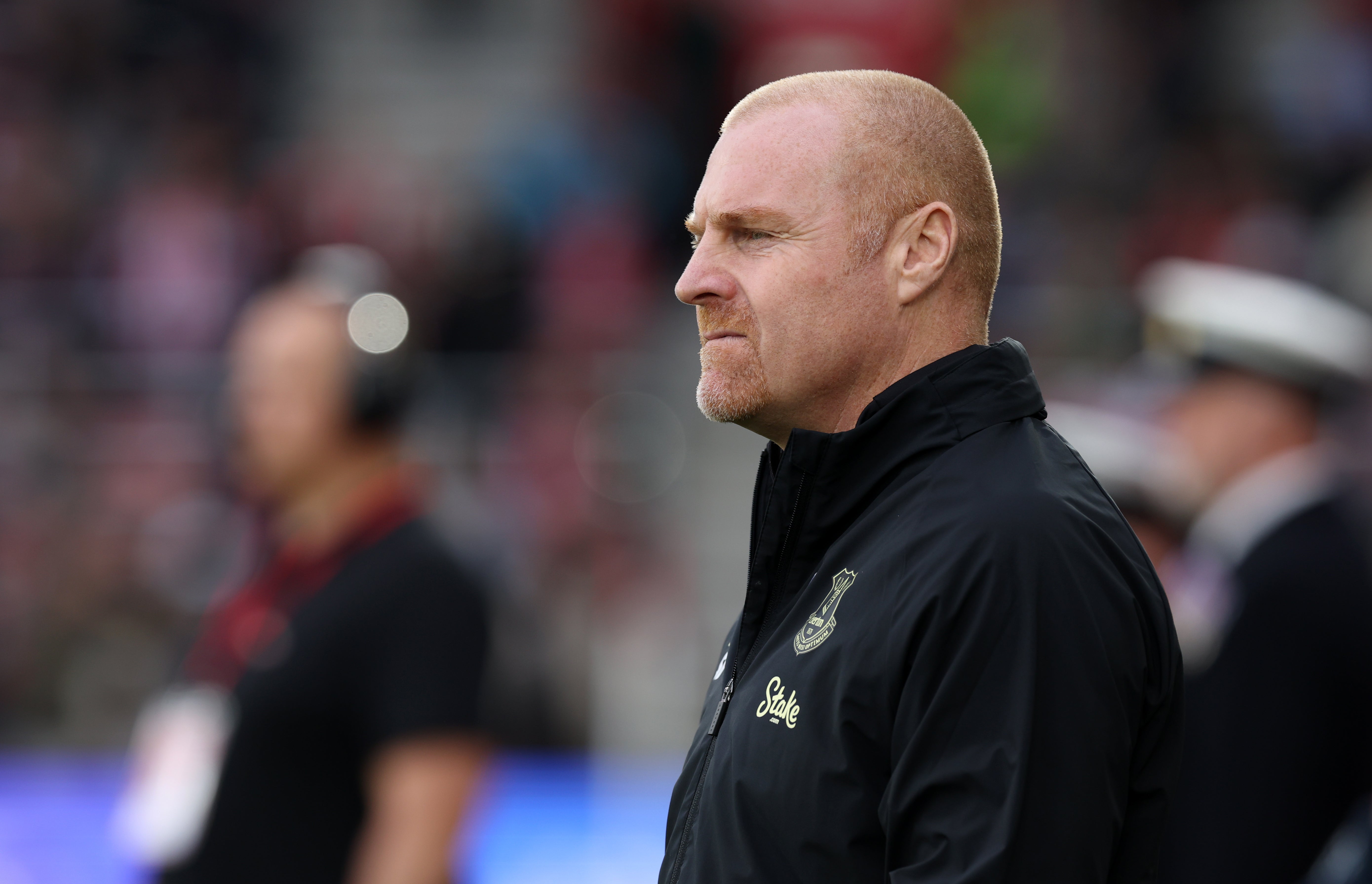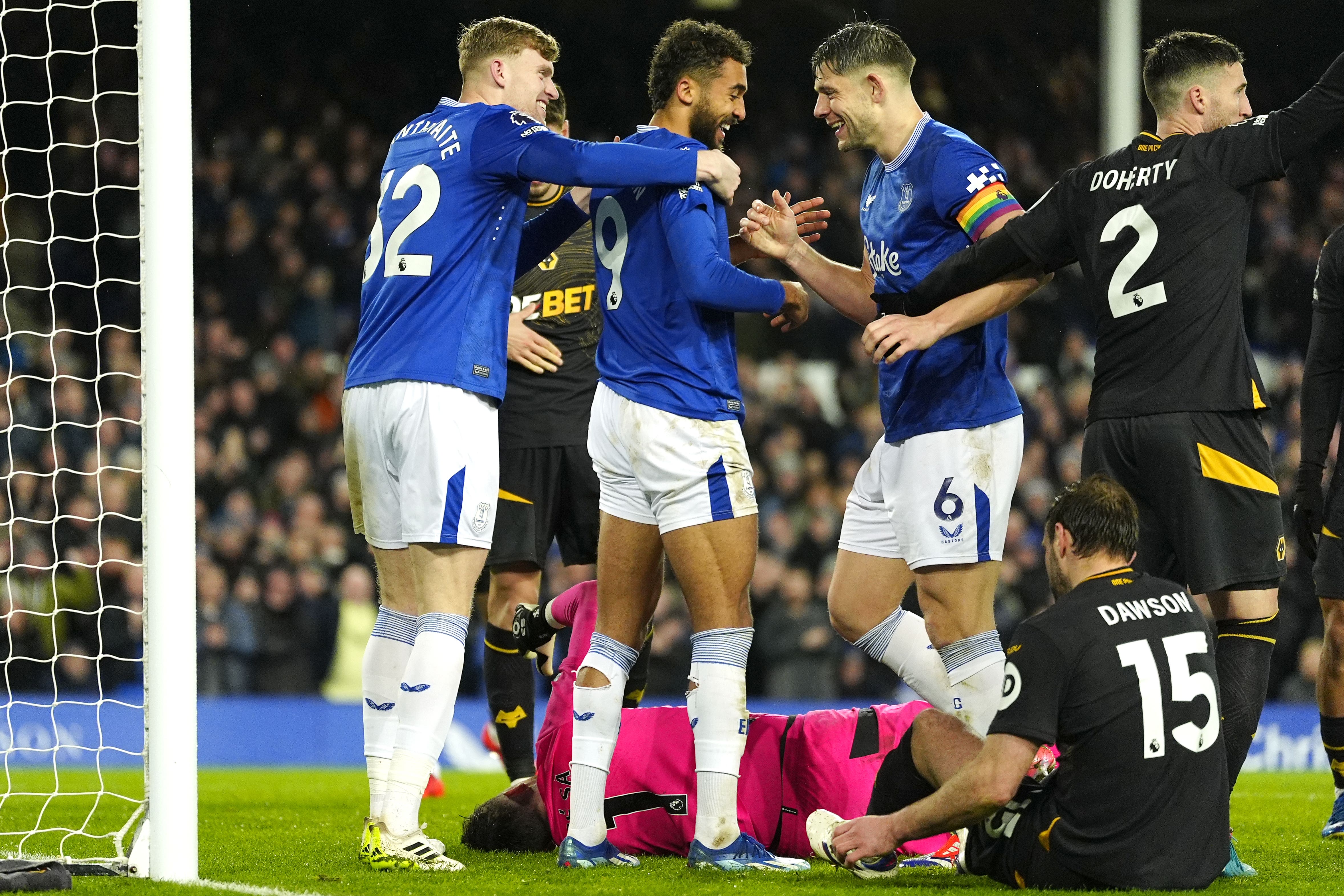Sean Dyche was never the manager Everton really wanted. For 18 months, however, he was the one they needed. He wasn’t their dream manager but a grim realist at what threatened to be the grimmest period they have ever experienced. And then their reality changed, just as his did. The arrival of new owners, in the Friedkin Group, the start of an era that will include moving into a £760m state-of-the-art stadium, would inevitably call for a manager who was a symbol of ambition.
Dyche never did make it to Bramley-Moore Dock, but then he was never going to. Not with his contract expiring in the summer. But there might have been a chance he would make it to the end of the season. Until a man who was supposed to represent a guarantee of survival had Everton appearing ever more endangered: by the revivals of Wolves and Ipswich but, above all, by their own chronic inability to score goals or win games. There wasn’t the ruthlessness of the best Dyche teams; a manager who rarely seems to doubt himself lost a little confidence in his ability to conjure an improvement. He may be disappointed to depart but the impression is that he was not devastated.

Dyche leaves with three wins in half a season; four if a Carabao Cup tie against Doncaster is included. Sacking him three hours before an FA Cup clash with Peterborough may have denied him a fifth. It said something that the highlights of Dyche’s campaign to date were arguably draws, the trio of games where they held Arsenal, Chelsea and Manchester City. And yet the blueprint appeared to have been pared back so far that Dyche’s Everton played for 0-0 draws and had a strategy that depended on Jordan Pickford’s heroics. The spirit of the Blues is central to Everton’s identity but there was a time when they were the School of Science. Not any more. Dyche could argue his Everton played the percentages, even if there was little artistry to lumping the ball forward, but the numbers were ultimately damning.
Everton failed to score in eight of Dyche’s last 10 games. Their top scorer in that time was Craig Dawson; a Wolverhampton Wanderers centre-back proved more prolific than every Everton striker combined. It said something about how bad the football was: perhaps it was fitting that in Dyche’s final match, at Bournemouth on Saturday, Everton failed to register a shot on target.
But for set-pieces, they would have been almost impotent: Iliman Ndiaye’s leveller at the Etihad Stadium was their only goal that did not involve a dead-ball situation in those 10 matches. Everton mustered a mere seven goals in open play goals, the lowest in the division, and 18 last year, the joint fewest. Dyche could get a team to defend; his assistants Steve Stone and Ian Woan could give them a threat from free kicks and corners, but not otherwise. It feels proof of what most suspected, that with different players, Dyche couldn’t play better football. Everton had the least possession in the Premier League and, it seemed, the least creativity.
Yet Dyche managed in troubled times. This has been Everton’s era of austerity, with transfer-market profits over his reign. There was the semi-comical situation where the younger of Everton’s two right-backs – given Dyche didn’t trust Nathan Patterson – is 36 and the older, Ashley Young, is a former teammate of the 53-year-old manager.
Dyche had to make do. Which, for a season-and-a-half, he did. It is worth noting that Everton took 15 points from 20 games under Frank Lampard in 2022-23, 21 from 18 under Dyche in an upturn that was required, culminating in Abdoulaye Doucoure’s thunderbolt against Bournemouth to keep them up. Along with the surreal 5-1 win at Brighton and April’s emphatic Merseyside derby win, it ranked among the great days of his tenure.

Last season, Dyche’s Everton earned 48 points, though deductions reduced their tally to 40. His even temperament proved an asset amid the blows to morale of seeing hard-earned results cancelled out by failing Financial Fair Play. Dyche’s repetitive mentions of ignoring the outside “noise” may have helped him negotiate the uncertainty about Everton’s future amid former owner Farhad Moshiri’s misguided attempts to sell the club to the increasingly troubled 777 Partners.
And over his tenure, Everton avoided the twin existential threats of administration and relegation. Dyche may go down in Everton history as the bridge to a better time or the manager who drained the team of attacking impetus, leading to the end of their 71-year stay in the top flight. One theory is that he would keep them up and go. Instead, he is gone, his legacy in the hands of another.
There may not be too many fond memories of his tenure. Mentions of Everton’s ‘holy trinity’ were references to Alan Ball, Howard Kendall and Colin Harvey, not Dyche, Woan and Stone. Maybe Dyche, aware he only had a few months left, saying on Tuesday clubs like Everton have to engage in some succession planning, was not surprised. But now it is up to that successor to offer more excitement.






